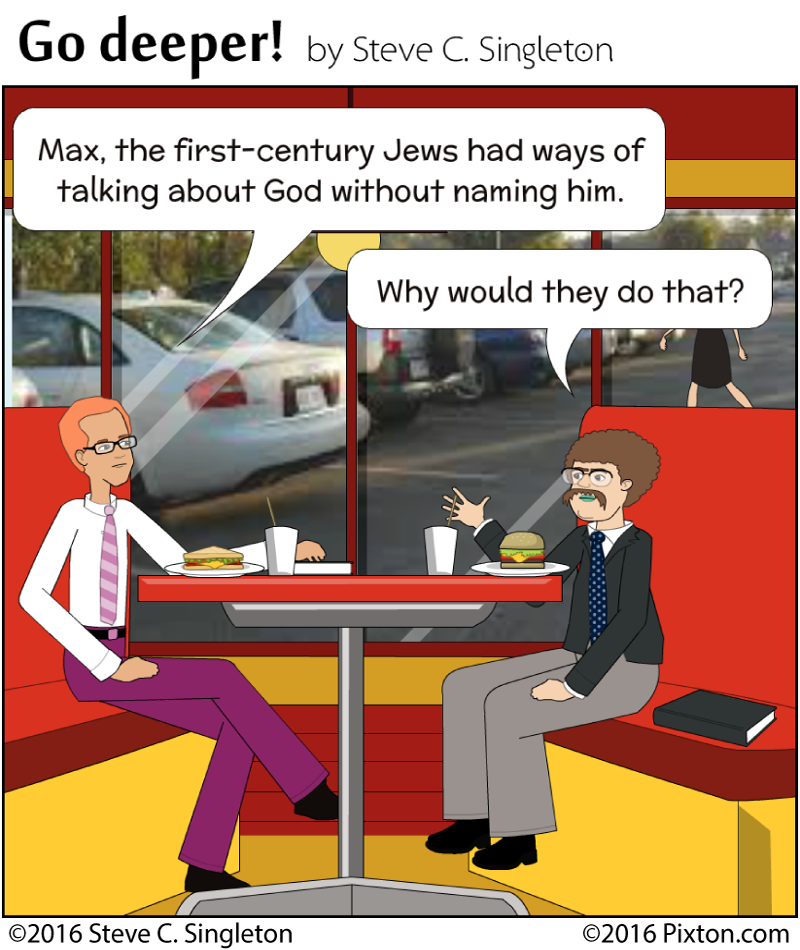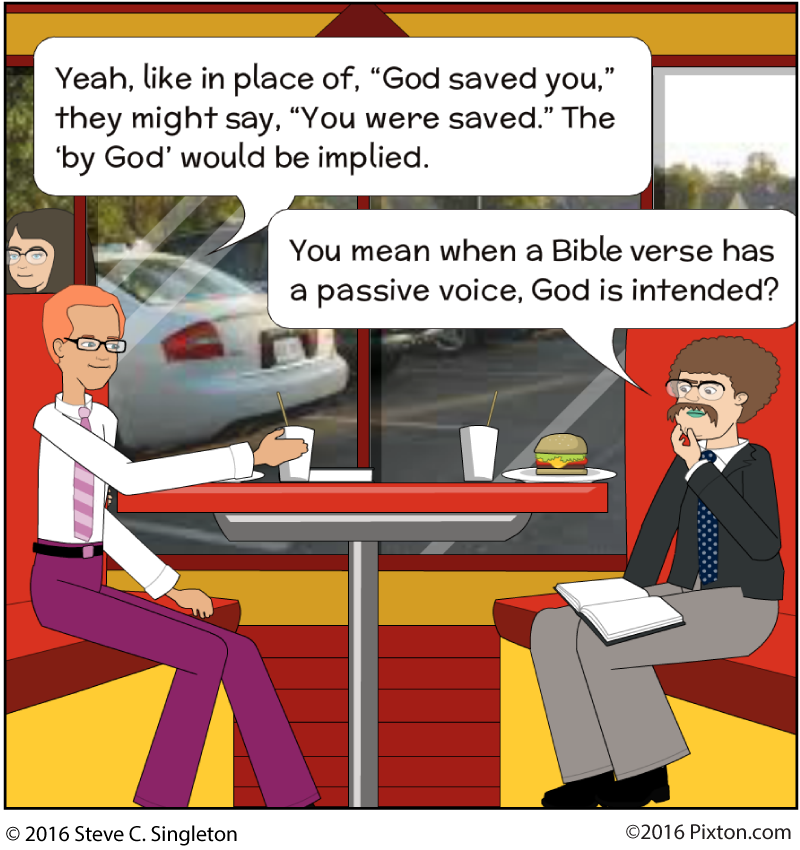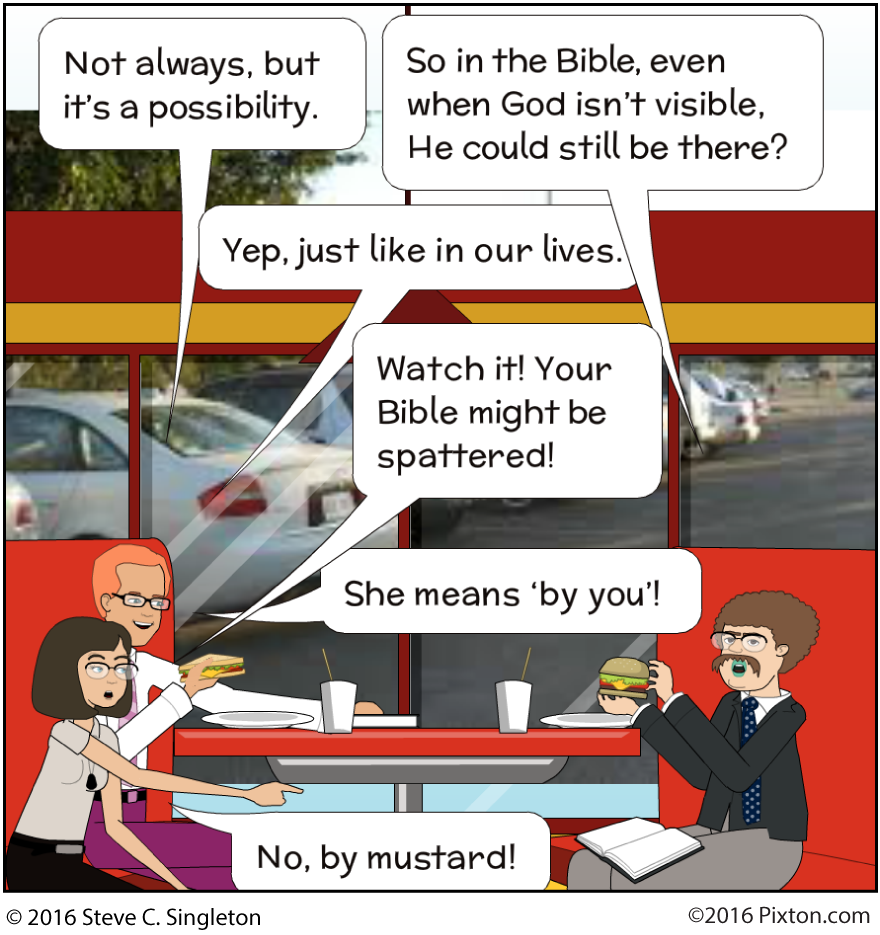Beating around the burning bush: Jewish circumlocutions for the name of God
Getting serious about obeying God
According to the Mishnah, the Jewish teachers of the law saw as one of their main responsibilities “building a fence around the law” (Aboth 1:1). In other words, just like a fence a few feet away from a cliff can prevent people from falling over the edge, they established boundaries to prevent people from breaking the Law of Moses. There was nothing wrong with such traditions as long as they did not either contradict the explicit word of God or take on an authority of their own rivaling the Scriptures. Jesus criticized the Pharisees, the prominent teachers of the law of His generation, on both counts (see Matthew 15:3-9).
There fence to avoid breaking the Third Commandment, “you shall not misuse the name of the Lord your God” (Exodus 20:5; Deuteronomy 5:11), was to become determined not to mention His name at all. This led to all kinds of strategies to speak of God in roundabout ways. Like the characters in the Harry Potter books, God became “he who must not be mentioned,” not over fear of his unspeakable evil but because of a praiseworthy respect for His infinite holiness.
It is clear that many of us in the modern world have not only hopped the fence that the ancient law teachers constructed; we have even fallen off the cliff. Returning to that early scrupulosity for the holiness of God’s name would require a major cultural overhaul. In our world, in which God’s name is profaned dozens of times a day, we little appreciate the reverence these Bible believers were attempting to express by their rhetorical devices. We can acknowledge that they were “beating around the burning bush,” but at least they’re circumlocutions prevented them from passing through its fire.
What is a circumlocution?
A circumlocution is any technique in speech or writing to express something in an indirect way rather than saying it directly. The Jews employed a number of circumlocutions to avoid mentioning the name of God. They would refer to something associated with God, employing it to stand in the place of his name. And him and him e ‘The Name,’ ‘heaven,’ ‘above,’ and ‘glory.’ All of these circumlocutions occur in the New Testament (see Rev. 11:18 [and perhaps Acts 5:41 and 3 John 7]; Matthew 5:12; John 8:23; 1 Timothy 3:16).
Using the passive to avoid mentioning God’s name
The use of the passive voice was another frequent circumlocution to avoid referring to God explicitly. When the verb is singular in number and no agent is mentioned, one should analyze the context to determine whether God is the unstated agent. Many scholars believe that this kind of circumlocution occurs in the New Testament, though recently some have been complaining that the use of passive as a circumlocution is at least overstated and perhaps illusory. They have suggested a number of other explanations for the use of agentless passive verbs.
Examples of passive voice as circumlocution
Many of the passive verbs in the Beatitudes (Matthew 5:3-9) seem to be cloaking the presence of God. Who will comfort those who mourn, fill those who hunger and thirst for righteousness, show mercy to the merciful, and call the peacemakers His children? But when we get to Matthew 7:1-2, who is the unspoken agent of these verses? Jesus says, “Do not judge, or your too will be judged. For in the same way you judge others, you will be judged, and with the measure you use, it will be measured to you.” Who will be judging you—God, or other people? The context cannot give us a definitive answer.
Translations that help us identify this use of the passive
If you compare the Good News Bible, the Easy-to-Read Version, or the Simple English Bible with one or more of the standard translations, you will discover that these translations tend to make explicit the unmentioned agent. That’s because the translational theory behind these Bibles calls on the translators to simplify the grammar, which includes translating passive verbs as actives. Check out the translation of Romans 12:2. ESV: “Do not be conformed to this world, but be transformed by the renewal of your mind….” In the Easy to Read Version: “Don’t change yourselves to be like the people of this world, but let God change you inside with a new way of thinking.”
Such a comparison will help you to identify passages that are possibly examples of Jewish circumlocution.
Want to go deeper?
Peter-Ben Smit with Toon Renssen. “The passivum divinum: The rise and future fall of an imaginary linguistic phenomenon.” Filologia Neotestamentaria 27 (2014): 3-24.
Smit and Renssen explain the rise of the Jewish circumlocution explanation for the occurrence of many agentless passive verbs in the New Testament. They note that this explanation has become more and more popular over the last 40 years, but they cite recent scholars who have presented reasons to doubt the frequency of this explanation. These reasons, among others, include the use of passive to emphasize the action over the agent, to separate the deity from actions viewed as negative, and to imitate the polite rhetoric of the Egyptian court. They call for an end of this explanation, though they also express their appreciation for a handful of scholars who have attempted a methodology for determining when agentless passives are examples of this circumlocution.






